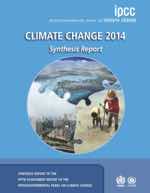We’re facing a $3b carbon crisis … and it could be worse
New Zealand has a $3 billion carbon headache looming – and Treasury says that’s the conservative estimate. Carbon emissions in the period 2021 to 2030 could cost the country as much as $52 billion. Official briefings to the incoming Government acknowledge that the costs of meeting emissions reductions targets after 2020 were likely to rise significantly because “our emissions are forecast to increase and carbon prices are likely to be higher”.
The country needs a carbon budget, says pressure group
A climate change lobby group is calling for a national carbon budget and legally binding emissions reduction targets. The Sustainability Council’s paper comes as it releases figures showing New Zealand is facing a carbon liability of between $3 billion and $52 billion by 2030. Drawing on Government documents and its own work, the research and advocacy trust paints a picture of a country running a creative carbon accounting process, in which carbon liabilities have been shunted off to a time when carbon prices are predicted to be much higher.
Groser has a cunning plan (but he won’t say what it is)
Climate Change Minister Tim Groser says New Zealand will “push the envelope” on post-2020 emissions reductions. But he still won’t say what that means. New Zealand has to announce its 2021-2030 emissions reduction target before the negotiations for a new international climate treaty in Paris late next year. Groser, who is now in Lima for UN climate talks, told TV’s The Nation at the weekend that the target didn’t have to be settled until the middle of next year.
Ocean heat drives surge to global warming record
It’s official, even though it won’t be conclusive for a few months yet: if present trends continue, 2014 will be one of the hottest years on record − and quite possibly the hottest of them all. Continue reading “Carbon News 8/12/14: NZ’s multi-billion carbon blowout”

 Today’s news that the US and China have agreed a long term policy to reduce carbon emissions is
Today’s news that the US and China have agreed a long term policy to reduce carbon emissions is  The IPCC’s Fifth Report process reached its climax in Copenhagen yesterday with the release of the final “synthesis” report (download
The IPCC’s Fifth Report process reached its climax in Copenhagen yesterday with the release of the final “synthesis” report (download  This guest post is by David Tong, an Auckland based community lawyer working on his Master’s in Law on the UN climate talks. He chairs the P3 Foundation and co-chairs the Aotearoa New Zealand Human Rights Lawyers Association, and last year tracked New Zealand’s climate negotiators as an Adopt a Negotiator Fellow.
This guest post is by David Tong, an Auckland based community lawyer working on his Master’s in Law on the UN climate talks. He chairs the P3 Foundation and co-chairs the Aotearoa New Zealand Human Rights Lawyers Association, and last year tracked New Zealand’s climate negotiators as an Adopt a Negotiator Fellow.